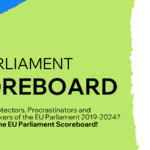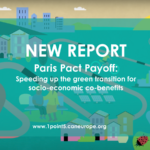In 2012 Nine countries put their weight strongly behind the Financial Transaction Tax (FTT) calling for the Danish Presidency to accelerate with analysis and the negotiation process even if there isn’t a Europe-wide agreement. This comes as a welcome development and shows that France, Germany, Belgium, Spain, Finland, Greece, Spain, Portugal and Italy are ready to put their money where their mouths are.
France’s President Sarkozy has been leading the charge on FTT, even though it’s not clear how the revenues collected will be spent. With France’s chairmanship of the G20 this year, he once again put FTT on the agenda and said he wants to introduce a code of conduct to regulate capital flows. In January he also announced a 0.1% levy will be introduced in France regardless of whether the EU implements it or not.
There is still some reluctance to support the tax by certain member states. The FTT has been a source of much controversy during EU negotiations, and was one of the reasons the UK Government vetoed changes to the EU treaty last December.
CAN-Europe and its members have strongly supported the member states calling for the FTT as we see it as new, additional and predictable source for financing climate action in developing countries along with other innovative sources such as from shipping and aviation. According to the Commission the FTT has the potential of raising anything from between €25 billion to €45 billion per year.
The Danish Presidency has also welcomed the new proposal and we hope that it would provide impetus into the discussions taking place at the climate finance workshop and ECOFIN council being lead by the Presidency later this month.



